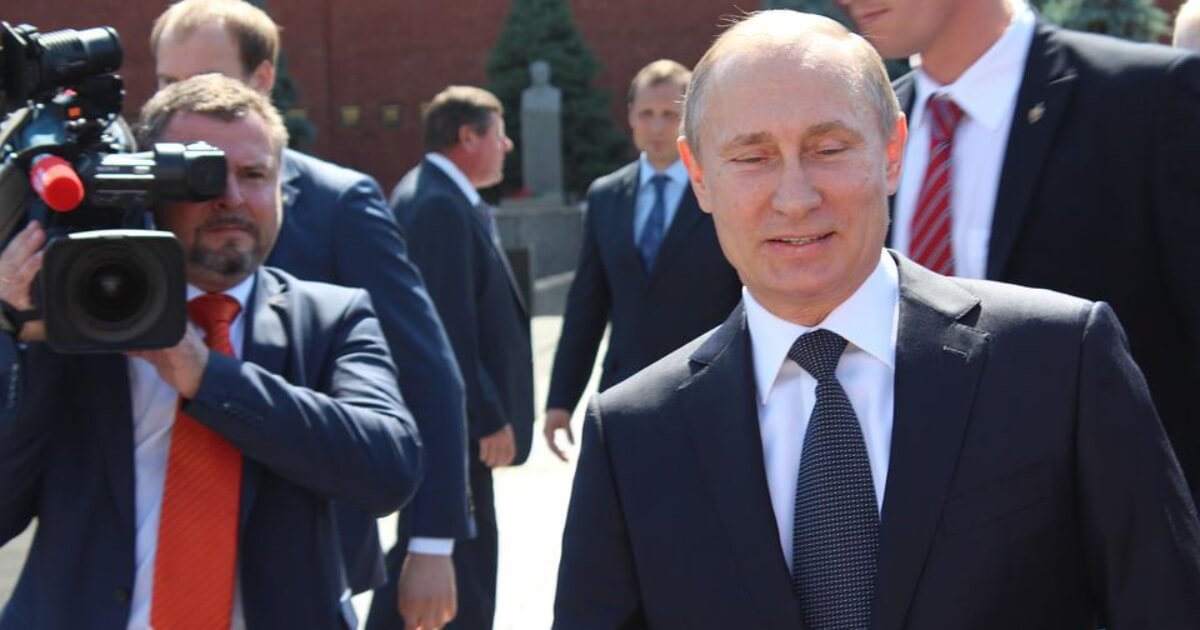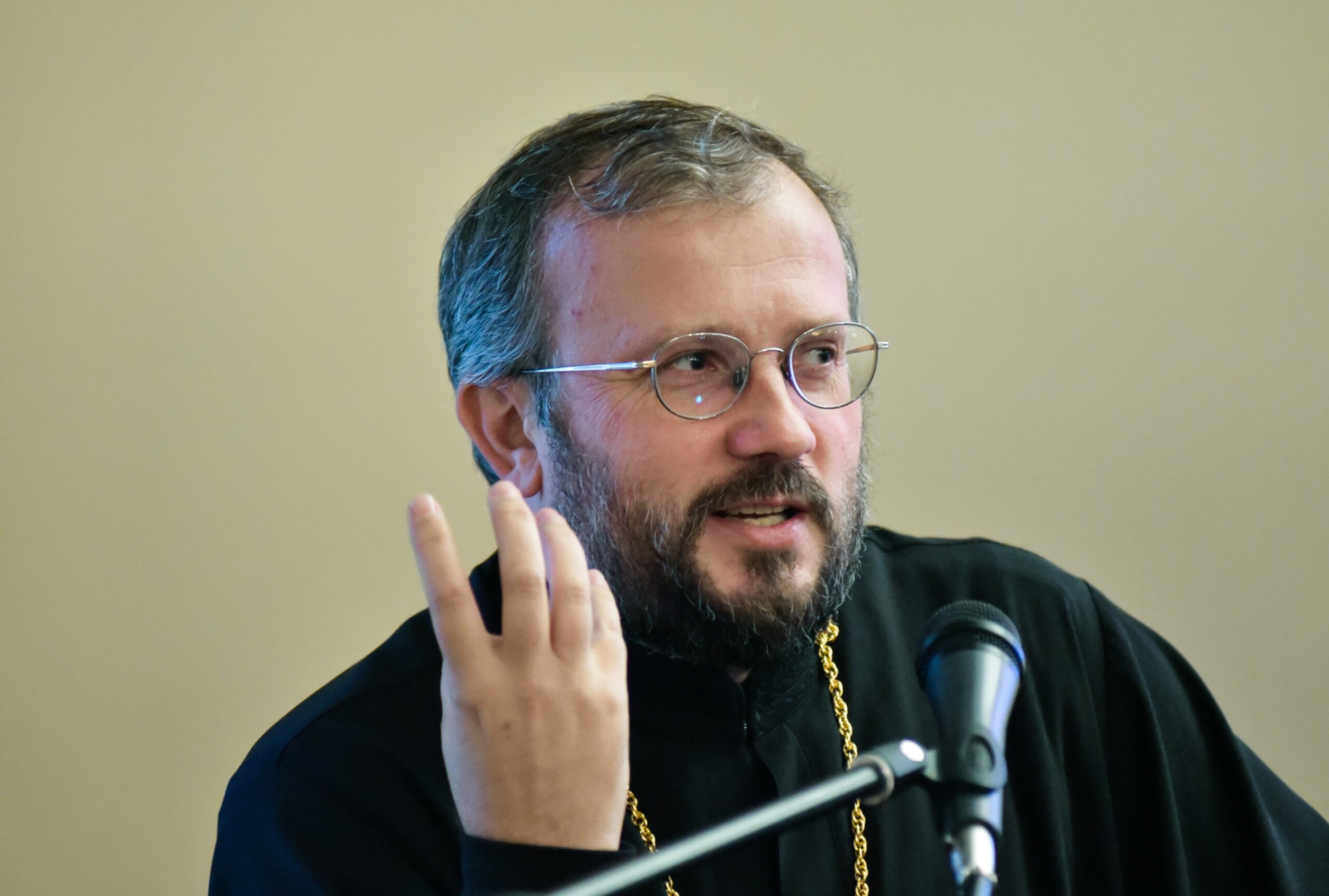Putin and Mussolini: Brothers in Spirit
Reflections on the complicit role of the Russian Orthodox Church in Putin’s brutal rule in Russia itself — and beyond Russia’s borders.
March 7, 2022

While comparisons of Putin to Hitler are being made, Russia’s strongman is closer to Benito Mussolini than to Adolf Hitler. That is true both stylistically and ideologically.
Putin is closer to Mussolini than to Hitler
Consider, for example, Putin’s appearances in public with a naked torso.
Far more important, however, is Putin’s kinship to Mussolini. That becomes readily apparent when one examines his vision of how the Russian state and society should be organized.
Symbiosis of the church and political strongmen
Mussolini managed to entice the Catholic Church to support him. He did so by claiming he was solving the “Roman Question” and signing a concordat with the Vatican. He also was very cleaver (and conniving) in using the desire of the church to regain a prominent place in the secularized public square.
Putin has played the same card with the Russian Orthodox Church. After the Soviet persecution of religion ended with the end of the Soviet Union, the church struggled to regain its formerly preeminent position in Russian political and public life.
Putin offered the Moscow Patriarchate a place in public life, but for a price.
The price to pay for rehabilitation
The church had to be completely loyal to the Russian regime. And loyal it has proved to be.
Only once, during the protests against the fraudulent elections to the Russian Parliament in the winter 2011-12, did the Patriarch of Moscow, Kirill, hint that the protestors might be justified.
Since then, he has never publicly doubted the Kremlin’s actions, however unjust and violent they may have been.
Deafening silence of the Church
Currently, as Russia bombs Ukraine into submission, the patriarch and other officials of the church are deafeningly silent. At best, they are ultra-cautious, using duplicitous euphemisms.
For example, Kirill has publicly urged the avoidance of casualties amongst the civilian population in the Ukraine. But this was done without any reference to the cause of these casualties.
Only a few Russian clergy have publicly condemned the war. Those who have signed the condemnation are a tiny fraction of all Russian priests. While the text’s wording is cautious enough, it has broken the silence of the Russian Orthodox church.
The role of Kirill in the “Russian World” theory
Even before he became the patriarch in 2009, Kirill had designed the ideology that has since underpinned Putin’s politics.
This is the ideology of the so called: “Russian world.” It is a world view that is best understood as imperial nationalism.
Imperial nationalism
It proclaims an exceptional role for “Russian civilization,” which is ostensibly destined to expand beyond the borders of the Russian Federation.
The proponents of this expansion justify it on the grounds of common language, values and beliefs. Wherever they see Russian language and Russian Orthodox religion existing, they want to establish political control over those areas.
From Crimea to Ukraine
That is how Putin, with the unbending support of the church, annexed Crimea and intruded into Donbas in 2014.
This ideology continues to frame the current Russian aggression in the Ukraine.
Religious dimension
The “Russian world” features a strong religious dimension. For example, it presents the unity of Russia, Ukraine and Belarus as analogous to the unity of the Trinity: The Father, the Son and the Holy Spirit.
It also divides the world into good (i.e., Russia) and evil (i.e., the West). It relies on this dichotomy and juxtaposition of “us versus them.”
Conclusion
Ukrainians are the “them” from the perspective of the “Russian world” ideology.
Meanwhile, Russia is ostensibly justified in waging a war against Ukraine because it is a vulnerable and weakened part of the “them.”
One thing is certain: If Ukraine falls, the Russians will go after all the other “them.” This is inevitable, given the “Russian world” thesis.
Takeaways
Putin has offered the Russian Orthodox Church a place in public life, but for the price of absolute loyalty.
The Patriarch of Moscow has never publicly doubted the Kremlin’s actions, however unjust and violent they may have been.
The Patriarch of Moscow helped design the ideology that underpins Putin’s politics -- the “Russian world.” It is a world view that is best understood as imperial nationalism.
The “Russian world” ideology has a strong religious dimension. It presents the unity of Russia, Ukraine and Belarus as analogous to the unity of the Trinity: The Father, the Son and the Holy Spirit.
Both stylistically and ideologically, Russia’s strongman Vladimir Putin is closer to Mussolini than to Hitler.
Putin seeks to restore an imagined empire, which he is unable to even describe precisely. Sometimes, it looks like the Soviet Union -- and sometimes like the Romanov Empire.

